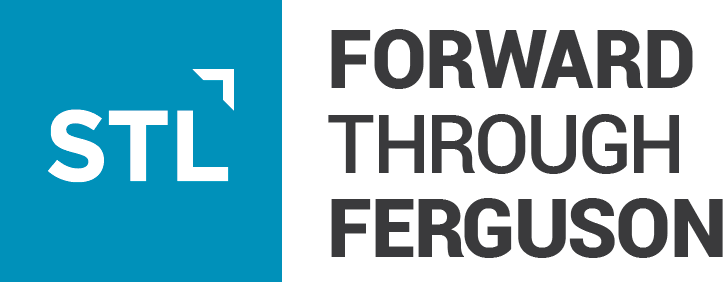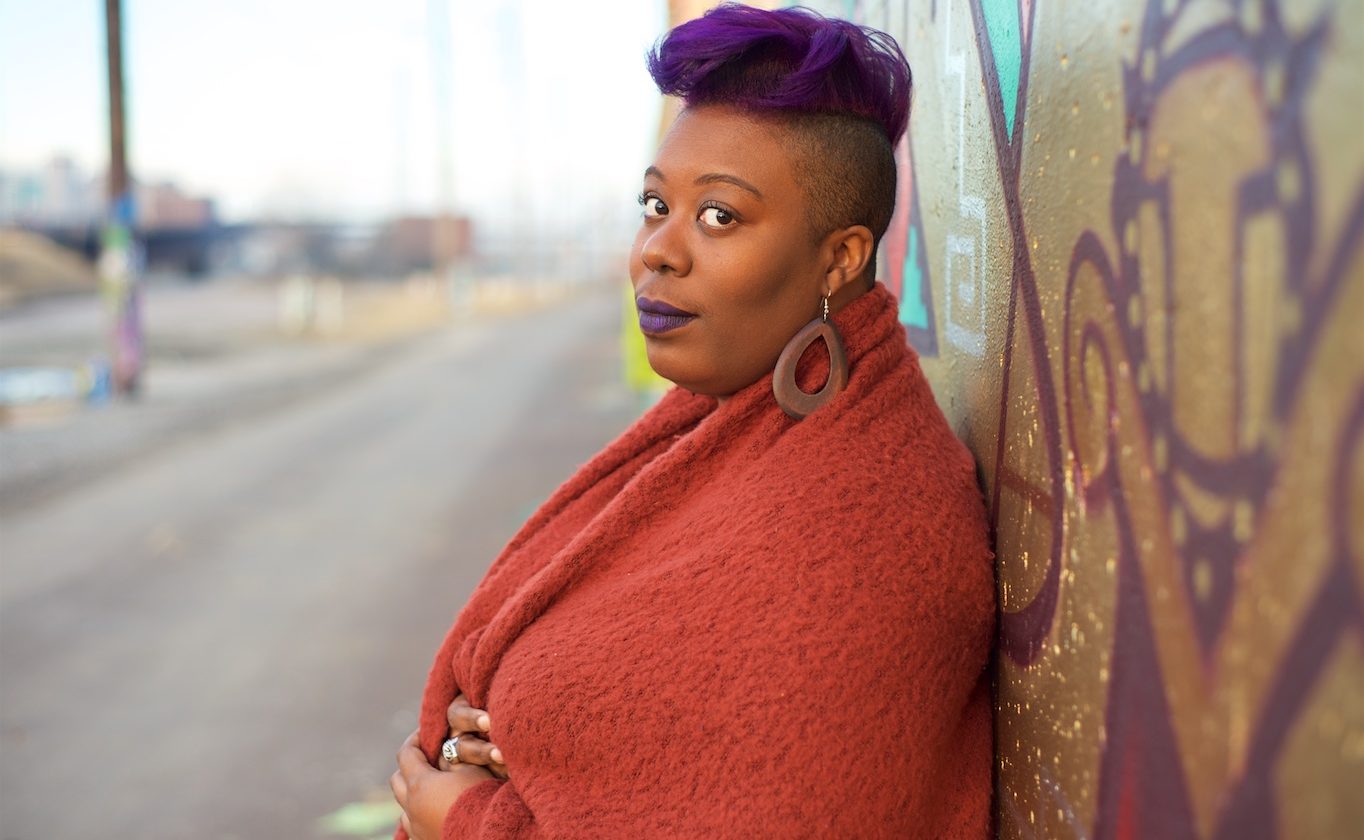Have you ever done a service core type thing? You volunteer, you become poor for a year, and then you get placed at different sites. I was placed at our sister organization called VOICE Buffalo. That’s where my work was supposed to be centered. Why organizing? I’m from Chicago and I have probably been engaged in community work since I was eight-years-old. It’s just part of who I am. In college, I started to have a lot of tension around charity and direct service ways of doing stuff because they perpetuate the cycle of poverty rather than being liberative and providing space for people to come out of that circumstance. So I didn’t know it, but I was looking for organizing. When I moved to Buffalo, and I still didn’t know what I was getting into, I read the description and I just knew, “This sounds like it.” And it was it. So, about three or four months into my year of service, I knew I had found my path and where I wanted to be.
At the time, spirituality was important. I had begun ministry while I was in undergrad. I was licensed in my local church there and I didn’t want to lose that. So, doing faith-based organizing was important to me. Metropolitan Congregations United (MCU) gave me the opportunity to be able to do that. Grounded in my own philosophy of life, I think of the world as my community. Wherever I am, in that space and time period, then that’s home. Although I don’t see myself in St. Louis long term, while I’m here it’s my desire to be able to give all of who I am to the space and to the city. I just think that’s a good way to live life, to be able to fully be present where you are.
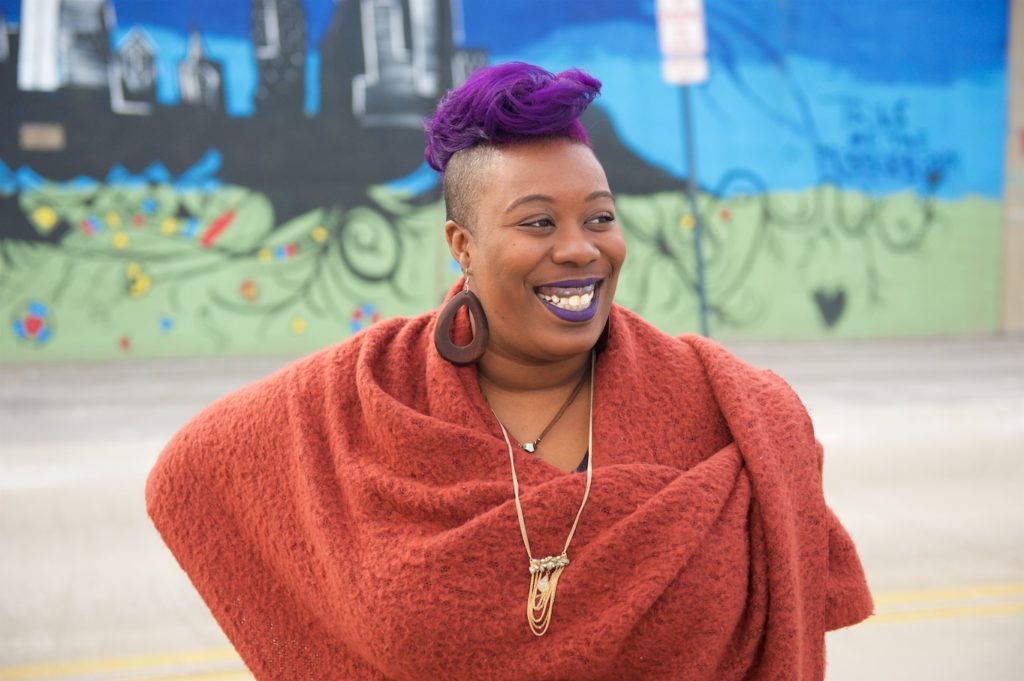
Brittini Gray, Photos by Lindy Drew
As an organizer, you’re always focused on implementation work. What the energy around Ferguson did was help galvanize more people and focus it. The Break the Pipeline campaign is really a combination of different kinds of energies that were going on pre and after the uprising. The foundation of our work, which has the most attention, is around school suspensions. That work began out of some youth organizing that I was doing in partnership with the Youth and Family Center. The Ferguson Report gave us more energy behind what we were already moving. It also then created a strong emphasis and focus around policing culture and accountability.
Since 2013, we had been working with one of our congregations around juvenile justice work and struggling to find the way for it to focus the land and get some energy. So once the uprising took place, we began to have sacred conversations on race as a way for congregations to figure out how to respond and what even to do. Our action steps were then able to come off of the policing, education, and juvenile justice work. We used that as a launchpad to tie together all of this issue work that had been kind of disconnected and not as strategic beforehand.
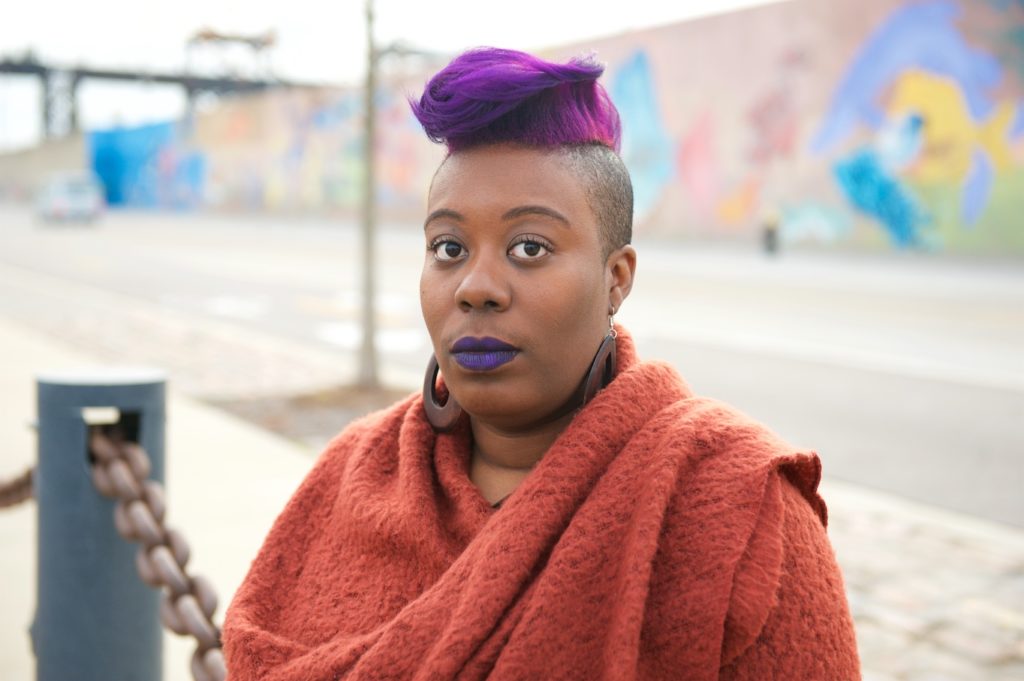
What’s difficult about organizing is waiting for institutional and systemic change to actually happen. This is my personal philosophy, not an organizational philosophy. I like to clarify that. And I believe most of our public systems are inherently flawed and subsequently broken. So because our focus is around things like policy and institutional change, you have to be able to want to push for accountability and changes around those things, but you also have to be aware that stuff is just not going to move at the speed you want it to.
There continues to be, even two-plus years later, a real difficulty in being able to talk about how race operates and plays out in systems that it hinders the work. When you have police departments that still continue to act as though implicit bias and racism are not a factor, when you continue to have school districts that don’t want to look at all the multiple facets – including school suspension, but even testing and curriculum and how that impacts children differently because of race – when you continue to have court systems that are built off of the exploitation and criminalization of Black folks and folks don’t want to be honest about it, that’s what makes it difficult. For this work to be important, all players have to at least come to the table with honesty, and we continue to struggle with that. It’s not a comfortable conversation. It’s a conversation people were tired of and are already tired of again, but it’s part of the reality.
A lot of people know about the Break the Pipeline campaign and think it’s great. But a lot people are not showing up around the table when it comes to the day-to-day work that has to go into seeing the outcomes that people witness at that meeting. What’s difficult is just getting people organized and active towards that change. There’s always an issue of capacity for that reason. The focal point of the Break the Pipeline weekend was the November 2016 event, the “Regional School Assembly: Keeping Our Kids in the Classroom.” That built off of the previous work student organizing had done, particularly with SLPS. We wanted to use the success of getting that policy change implemented in the city to really galvanize the other districts. We had focused districts that we have worked on over the past few years – Ferguson, Florissant, and Normandy – that we have built relationships with. We were going to go after them and then extend to other school districts. The beauty of partnership is that Julia Brucks and I had been in contact, and she was just like, “Well, why don’t we just partner and go after all 30 districts?” I thought, “We totally should, except we don’t have the capacity for that.” She said, “Well, let’s make it happen.”
What people don’t know, but is important when I talk about having systems of support, is being in relationships with folks who can see your vision and help build on it.
So, what people don’t know, but is important when I talk about having systems of support, is being in relationships with folks who can see your vision and help build on it. It was really Julia coming in and saying, “Let’s do it,” that I was like, “Okay, cool.” We probably would have pushed for another five to seven districts on our own, but bringing Ready by 21 to the table instantly doubled that capacity. At the same time, I started having conversations with the FOCUS Impact Fellows, which then brought additional capacity. Ready by 21 brought a couple of other partners along. MCU provided a lot of the groundwork, organizing, and meeting with the superintendent. Forward Through Ferguson was able to provide a lot of the communications. So different partners at the table brought different things, which was important for a successful Sunday. It just all came together over the summer from these groups that had heard about the work going on because of SLPS. All I needed was another person alongside and I was like, “Alright! Let’s go.”
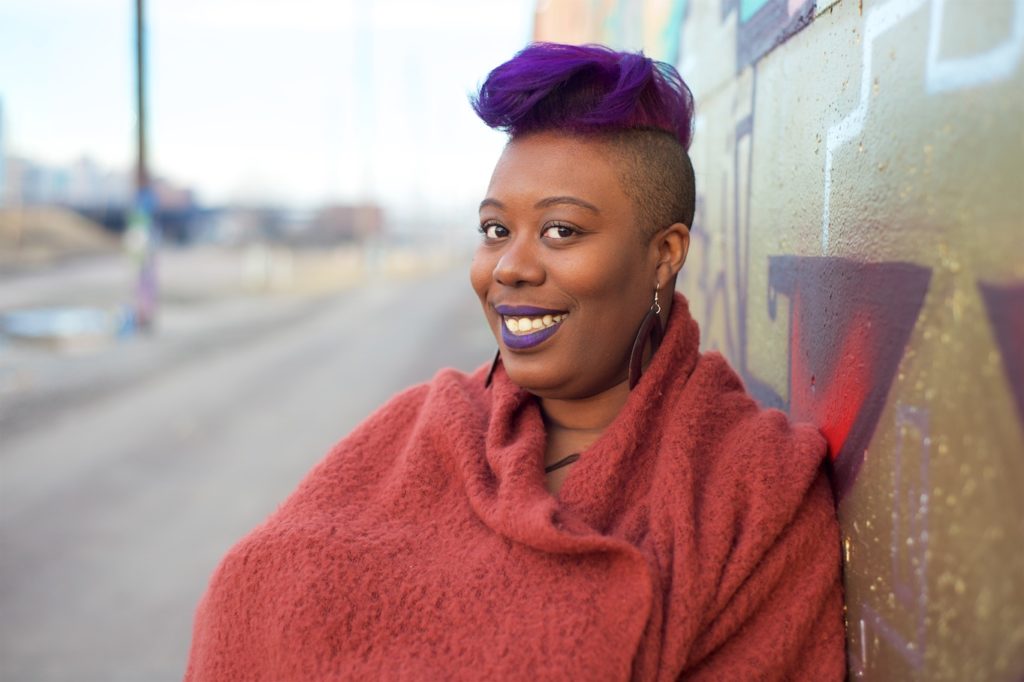
I’m excited the buzz is still going and people are paying more attention to the schools in particular, but, overall, the way that these systems interact together. That’s just as important because there has to be awareness and understanding of why these changes are needed, which is probably the most difficult thing. We get conditioned to take some things as they are. As an organizer, you have to consistently be painting a vision and a picture of what can be other than what already is.
As the event revealed, we now have three new school districts that are committed to policy change, which is huge. Then you also have another 15 or 20 districts that are like, “We’re going to be more responsive and begin to look at how we begin to reduce suspensions so we can get to policy change.” We had a couple of districts who hadn’t made commitments then that reached out to us afterward. And the conversation is now extending to charters as well as catholic schools. Public schools are a tangible landing place to begin the work, but it’s a problem across the board in education. To have other sectors thinking about this and parents and teachers saying, “How do we get this implemented in our school?” is really important.
Not only is the conversation around suspensions picking up, but so are the conversations around positive supports and making sure the schools are properly resourced to be able to respond to children. However, and this is true with all organizing, there is always something on the horizon that you didn’t see coming. And while there’s all this energy around policy, there are new statutes that are going to be going into effect January 1st that school fights can now be classified as felonies. So it’s this back and forth dance between a victory and something else you’ve got to fight against.
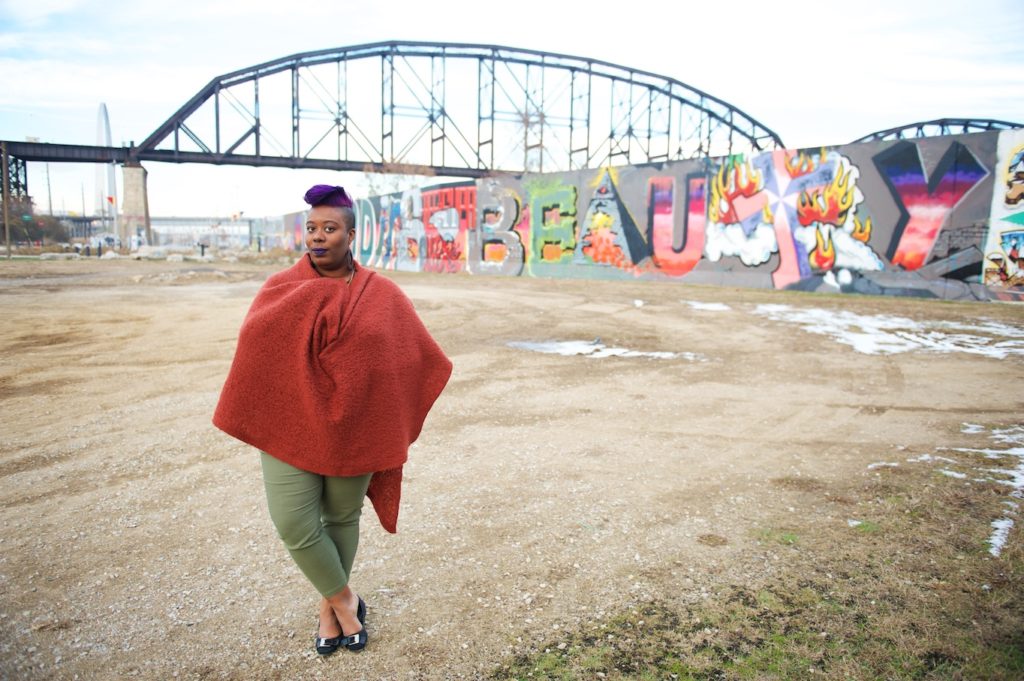
Education has always been important to me because I had a varied K-12 experience. I started off in private schools from K through second grade, I went to a charter school from third through ninth grades, and then I graduated from a public high school where I completed tenth through twelfth grades. I’ve literally seen three different manifestations of our education system but also was able to compare and contrast my experience to that of my peers who were in neighborhood schools.
When I was nine, I was tutoring students three and four grade levels above myself. I was fortunate enough that I never got suspended from school. Instead, I was on indefinite detention during recess. I don’t necessarily agree with that because there are alternatives. But every child doesn’t have a teacher or teachers in their life who are willing to say, “We’re not going to kick you out, but we’re willing to do something else instead.” That type of thing should be normalized. The system should be able to operate to say, “No, the response to children misbehaving is not severe punishment.” Who knows what would have happened if I would have been suspended? But I know what it’s like to be disciplined in a school setting.
A story I recently just learned of is of a young boy I know now who is out on 180-day suspension. That’s more than a school year…I don’t know how we justify a child being put out of school for that long and think it’s okay.
It surprises me just how petty a lot of suspensions are. When I was doing student organizing a couple years ago, probably about two-thirds of my high school students had been suspended. A lot of them were suspended for things like laying their head down on the desk when the teacher told them to sit up or getting up to throw away some paper against the teacher’s wishes. Just extremely petty things that they would receive one to two days of suspension for. Actually, when you talk to superintendents, they will tell you that a lot of suspensions were based around this ambiguity in policy that says students can be kicked out for disrespect.
In the summer of 2015, when I was doing some work out in Normandy and probably had about 40 or 50 youngsters under the age of eight, three-fourths of them had also been suspended. It was utterly ridiculous, and I remember there were these eight young girls, probably about five- and six-years-old, who were all standing next to each other. And they all raised their hands when I asked, “Who has been suspended?” I asked, “Well, what grade are you in?” And they said, “Oh, we’re going into kindergarten.” So that was disheartening.
A story I recently just learned of is of a young boy I know now who is out on 180-day suspension. That’s more than a school year. So, the rest of the school year plus the beginning of the next school year. This is his second round of an extended suspension because of a school fight and he’s only 13. I don’t know how we justify a child being put out of school for that long and think it’s okay. He actually came up to me and said, “Are you planning on asking districts to go beyond third grade?” I said, “No, not yet. Why?” He said, “Because…” and then shared his story. He was like, “We need this across the board.” This is a child telling me that.
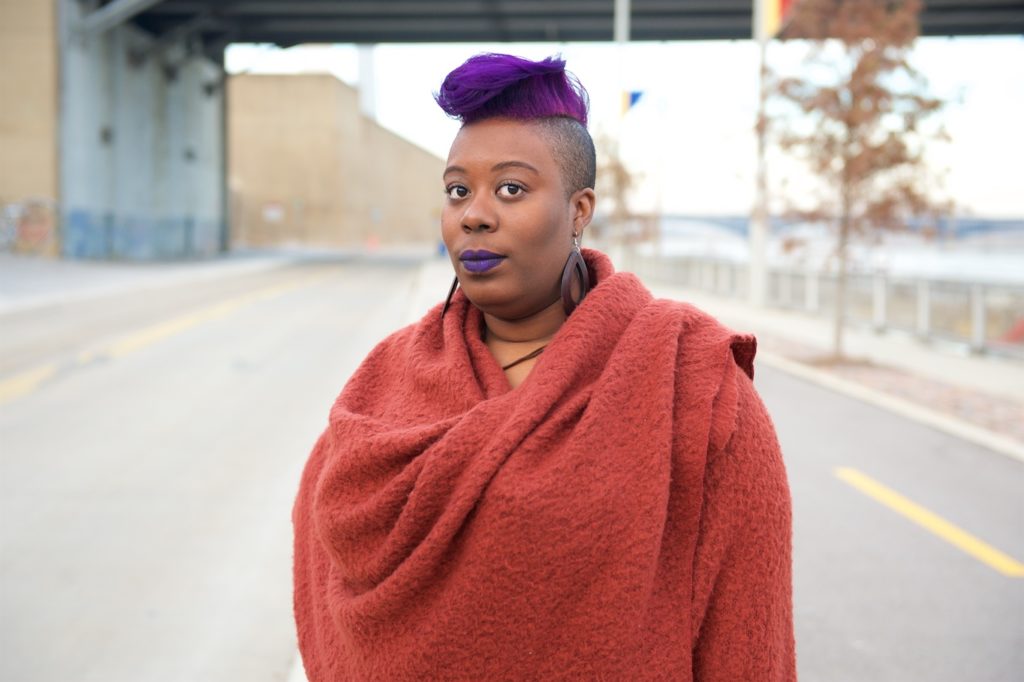
I had a superintendent tell me that a teacher told him he suspends Black students more often because parents don’t fight them on it. When he suspends a White child, then he knows he’s going to have to deal with the parents. But when he suspends a Black child, he doesn’t have to worry. For him, that makes it easier to be able to do it. That’s not okay. So, people can argue me down all day about how it’s not the teacher’s fault and how not everyone is racist, but we all operate out of our biases whether we want to or not. That’s why it’s called implicit. That is why I am a huge proponent of anti-racism and bias training, which needs to happen for all staff regardless of what capacity you operate.
I am also a huge proponent of trauma-informed care. One morning I was leaving for work, and there were two young girls that live right next door to me. Their father came to pick them up and got into it with their mother. There was an argument going on early in the morning. What disturbed me was when I looked over, he had pulled out a gun and was ushering them into the car with the gun. I’m glad nothing slipped or the gun didn’t go off, but I just thought, “They’re literally on their way to school. They have to go sit in a classroom and are expected to be fully present when this was their morning.”
It’s not necessarily about saying that every child has a traumatic experience that is life-altering but to understand that a lot of our society creates a traumatic environment. We think of trauma when we think about soldiers in war, but what happens when we process the day-to-day stress of life the same way that a soldier processes war? There’s an increase in studies that have shown the way depression shows up in children is through agitation, a lot of movement, and disruption. So, emotional and social supports are important because we’re talking about children. We expect children to behave as adults and even we don’t behave like we expect children to. I have other philosophies around what the classroom should actually look like that’s conducive to children being children but, beyond that, having the proper supports in place is crucial.
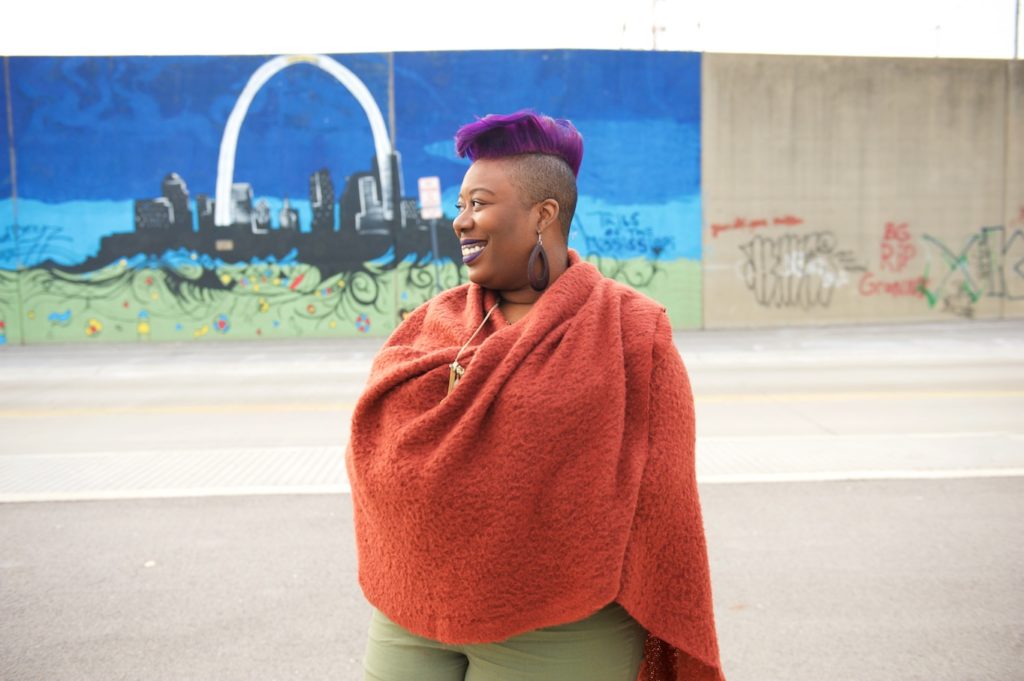
When I came to St. Louis, I wanted to work on education. One of the requirements was for me to be able to go back to school when I was ready and work on education at MCU. I started off in the Masters of Divinity program, which is traditionally a track for people who are seeking ordination. I’ve never really wanted to work in the church. For me, organizing is ministry. The Masters of Divinity track made sense. I didn’t have any interest in being part of the clergy at 10-years-old, but it was probably that young that I had a lot of questions about my faith. I wanted to be able to study in an academic setting. Seminary challenged a lot of embedded things that we learn from being in church. It provided new insights for me. And, through that, I decided to leave the church. I have been gone from the institutional setting of Christian faith for a year, and during that time I decided that the although I started off in a Masters of Divinity program, which is traditionally a track for people who are seeking ordination, the Masters of Theological Studies, which is more of an academic-based program, would better serve me.
MCU has a history of doing education work. At the time I came, it was pretty dormant and, in some ways, had died. It was my job to bring it back to life, which required rebuilding it and essentially building these other factors with the juvenile courts and the policing. The purpose of MCU is to work to build leadership out of communities of faith to address issues of social injustice. When these different chapters of our national network get planted, they’re designed to be community organizing organizations. This is where I found enough energy and space to make change. This is where I was able to put my passion for education and align it with what we were hearing from people in congregations and the folks who were engaged in where they wanted to actually spend their time.
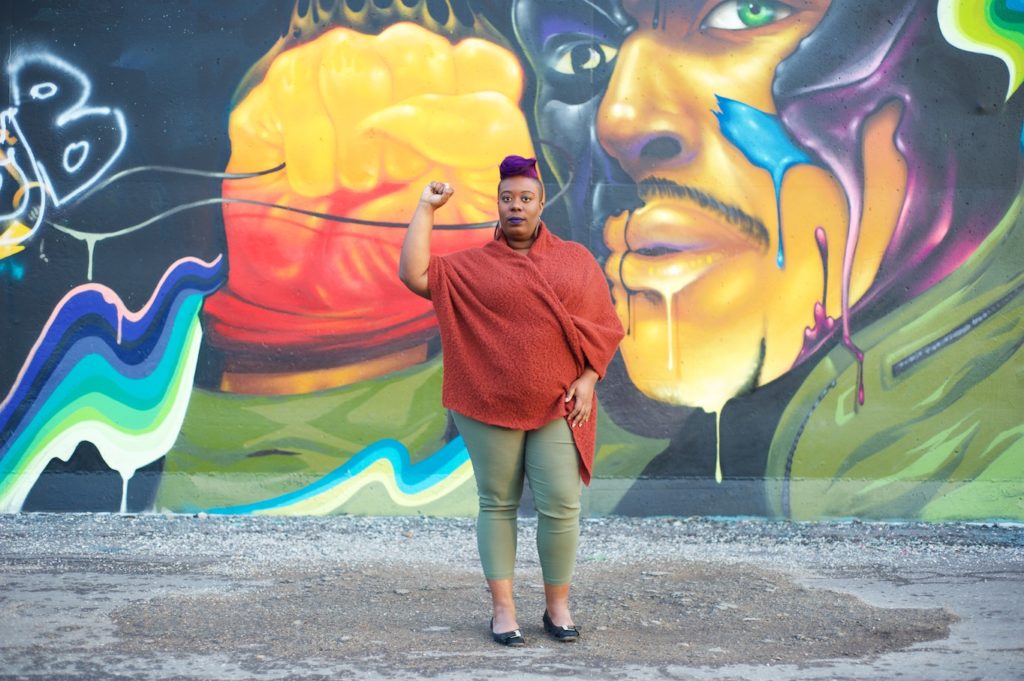
I still care about the church because all of this work is about Black liberation, and when you have Black liberation, you have full liberation for all others. The foundation of our country, which impacts the world because of globalization, is based around this Black/White dichotomy. It’s not to erase other people of color and other oppressions, but it’s to say that the roots of where we are come out of that. When you think about it as the foundation, then Whiteness and White culture have traditionally been painted and continue to operate as the norm and representation of what is right and Blackness has been opposite of all that. When I talk about Black liberation, I’m talking about what is considered to be the bottom of the bottom. And when you are able to change how that – which has been defined as the least and evil – if that can be transformed and set free, then all other things beyond that can follow. The Black church, in particular, continues to be a place where a lot of Black culture is defined and shaped. Even though I have spiritually removed myself from that setting, I still see it as an important space institutionally to work.
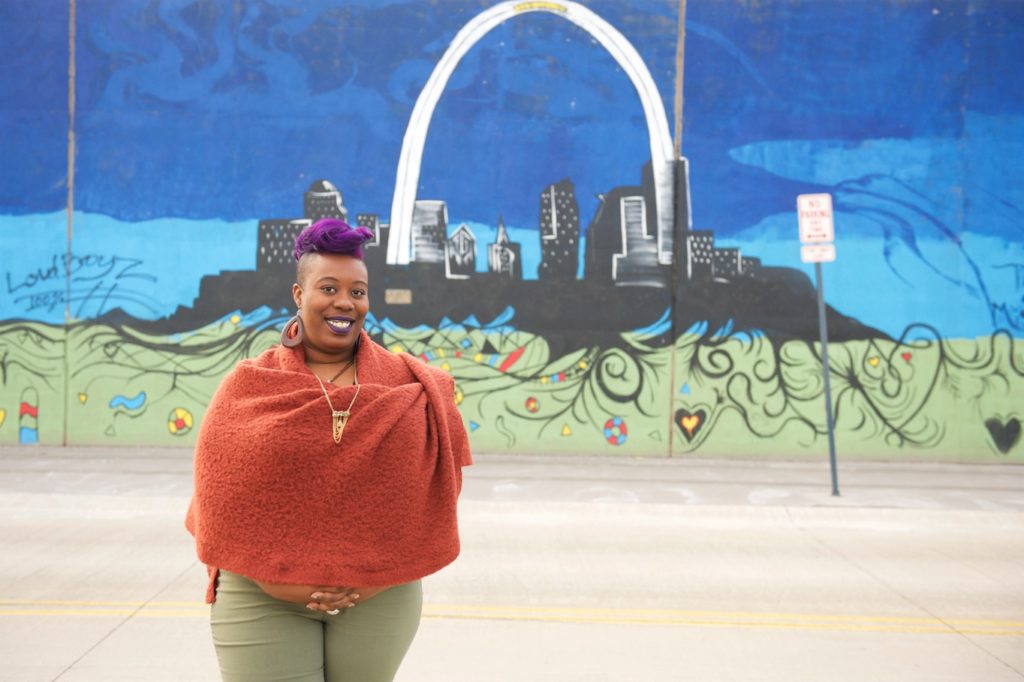
One of the things that struck a chord with me coming out of Ferguson was how important it is to have spaces to heal and to be able to deal with things like trauma and oppression. I, personally, went through that. I’m a poet, and probably all of my poetry was lamenting. I went through about a year of deep, deep lament and came out of that wanting to be able to create spaces for people to heal. And still embedded in it is my theology against my personal issues with the institutional church and a belief that who the church is called to be ought to be a space where healing can take place. The barrier to that actually happening now is how White supremacy impacts that space. That’s what my thesis is centered around: How does understanding White supremacy and its function within the Black church, and how the Black church has engaged with the space of movement – particularity around movement for Black lives – create a pathway for churches to be resources for healing?
“For people who don’t even think about stepping into any of this work, like education, race relations, and anti-bias, anti-racist training, what do you want them to know from all the work that you’ve done?”
It’s life. It’s not this abstract thing that liberals or liberalism subscribes to per se. It’s not something that’s reserved for this segment of society. It’s the real, daily-lived experiences of people who we all come in contact with. It’s about basic human rights and dignity.
-Brittini Gray, Lead Organizer at Metropolitan Congregations United
